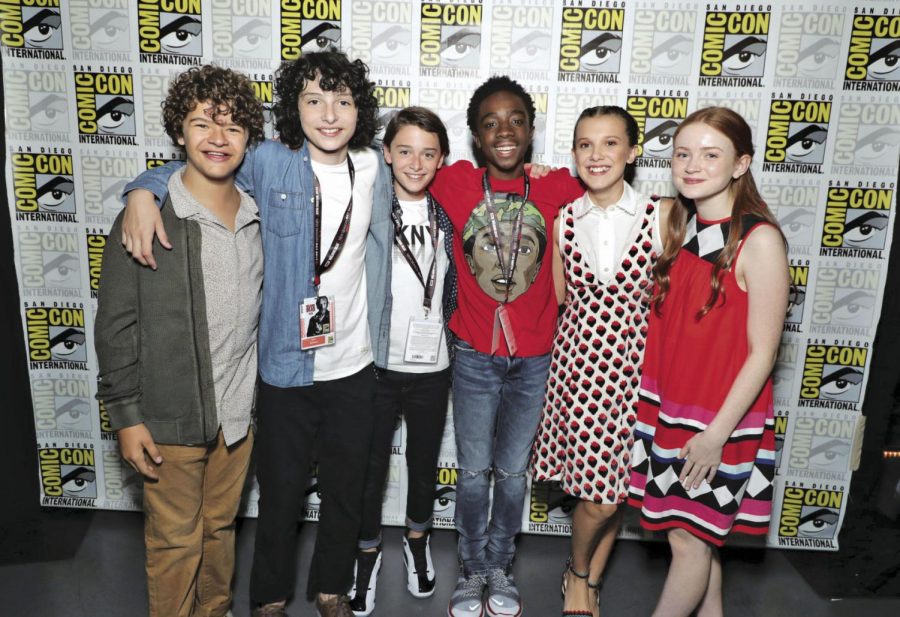Sexualization of child actors such as “Stranger Things” cast must end
With the popularization of “IT” and “Stranger Things,” child actors are getting a lot of attention. Most of this attention is positive, focusing on their skill as actors and their potential to grow and get even better and whatnot. However, not all of the attention has been so good.
Millie Bobbie Brown, who portrays Eleven on Netflix’s “Stranger Things,” appeared at one point in W Magazine on a list of stars making “television sexier than ever.” Finn Wolfhard, who appeared in both “IT” and “Stranger Things”, has had to deal with sexualization both from 27 year old model Ali Michael and from fans of “IT” that have chosen to “ship” him and fellow co-star Jack Dylan Grazer, meaning they support a romantic/sexual relationship between the two underage children.
It’s culminated to the point that Wolfhard felt the need to tweet on the topic recently, saying “I don’t wanna ex-communicate anyone from this fandom, but if you are for real you will not harass my friends, or co-workers. Ya’ll know who you are.”
This alone is concerning, but it also opens up a much larger conversation about the sexualization of underage individuals within America. I would even go so far as to say that America has a bit of a pedophilia issue, and this can be seen everywhere from Hollywood to the White House.
These issues involving children have all been in the wake of the unfolding sexual misconduct allegations going on in Hollywood, and in many ways they serve as an extension of it.
Gary Goddard, Charlie Sheen and Kevin Spacey have all been recently accused of sexual misconduct with a minor while working in Hollywood, and even political figures such as Alabama Senate candidate Roy Moore and Donald Trump (shocking, I know) fall in the same category.
While this could be a fluke, I feel it relates more to the inherent sexualization that minors deal within media. Consider the portrayal of teenagers in media: nearly every film will have teens being played by twenty-something actors with gorgeous skin and hair, which, let’s be honest, is not a realistic representation of teenagers.
Already we’re associating youth with hyper-romanticized body images, but then so much of media goes on to portray these individuals as sexually driven deviants, which, even if sex is a part of American teen culture, the portrayal of it requires nuance or one runs the risk of somehow normalizing the viewing of this.
But what about “Stranger Things” and “IT,” which, besides a chaste and innocent kiss between characters, is completely unproblematic in that regard? Well, there’s more to that too.
For one, “Stranger Things” is still guilty of sexualizing their teenaged characters. Nancy, Steve, Jonathan and even the gross racist Billy are sexualized in some way by the narrative, which perpetuates the normalization of sexualized minors. Even if their actors are of age, their characters are not, and the writers must be cognizant of that.
Beyond that though, the sexualization of the children themselves, despite not being sexually portrayed in their respective media, says a lot about the capacity of viewers. Sexualization of children has become relatively normal in our society, and that’s stranger than anything else.







